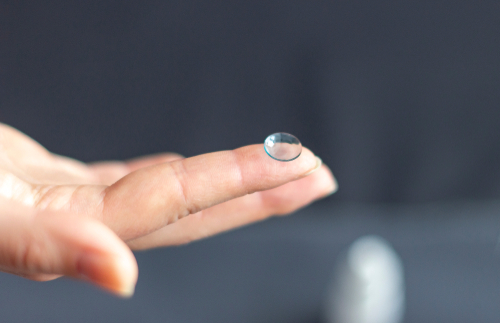
Do you want clear vision without glasses, contact lenses, or surgery? If yes, you may like Orthokeratology, or Ortho-K. It reshapes your cornea with special lenses that you wear at night. But Orthokinesis is not for everyone. It would help if you considered some factors before choosing it.
What Is Ortho-K, and How Does It Work?
Ortho-K uses gas-permeable lenses to reshape the cornea and fix vision problems like nearsightedness, farsightedness, and astigmatism. The cornea is the clear, curved window in the front of your eye that focuses light on the retina and helps you see.
Your eye doctor will measure your cornea with a corneal topographer and make a lens just for your eye. The lenses flatten the center of the cornea and change how light bends as it enters the eye.
You wear Ortho-K lenses at night to flatten the cornea and then take them off during the day. These lenses are rigid but let oxygen through, so your eye is healthy. Your cornea stays flat for a while, and you can see without corrective lenses. But your eyes will return to normal if you stop wearing the lenses at night. You need to wear them often to keep your vision clear.
Who Can Benefit?
Ortho-K can fix nearsightedness, where you see near things well but far things are blurry. It can also fix mild to moderate farsightedness and astigmatism, where your eye is not round and your vision is blurry at any distance.
Ortho-K may help children with myopia keep their vision from worsening as they grow up. But studies have yet to prove that orthokinesis can stop myopia in children or adults.
Ortho-K is ideal for people who want to avoid wearing glasses or contact lenses during the day. This is especially true if they are active or work in places where glasses or contact lenses are not ideal.
Who May Not Be a Good Candidate?
Ortho-K is not for everyone. Some factors may make you ineligible or unsuitable for this treatment.
These include:
Having severe refractive errors that exceed the range of correction that ortho-k can provide.
Having an eye disease or condition that affects the health or shape of your cornea, such as keratoconus, corneal scars, infections, ulcers, etc.
Poor hygiene habits or difficulty following instructions may compromise the safety and effectiveness of Ortho-K.
Having unrealistic expectations or not understanding the risks and benefits of orthotics.
Determining If You Are a Good Candidate
To see if Ortho-K is right for you, talk to an eye doctor specializing in this treatment. They will check your eyes and your vision goals. They will also tell you how Ortho-K works and what to expect. The eye doctor will inform you about the duration of the treatment, the cost, and the risks and side effects.
If you decide to try Ortho-K, your eye doctor will fit you with custom-made lenses and monitor your progress regularly. You must follow their instructions carefully and report any problems or concerns. You will also undergo regular eye exams to check your eye health and vision.
Ortho-K is a safe and effective way to improve your vision without surgery, but it is not for everyone.
For more on Orthokeratology, visit Optometry Medical Group at our Seattle, Washington, offices. To schedule an appointment, call (206) 888-6128 or (206) 888-6028 today.








